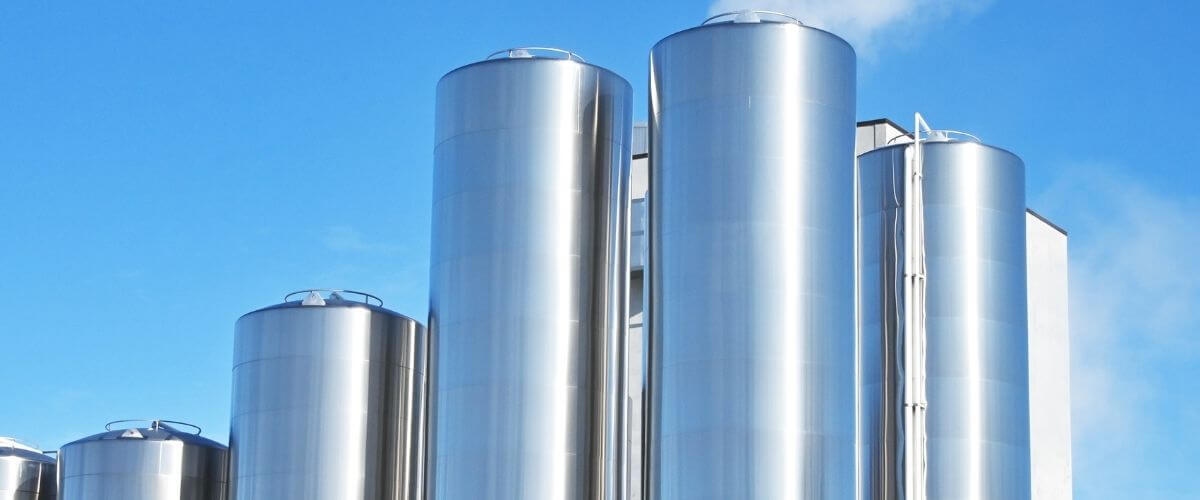
Why are uses for commercial stainless steel tanks everywhere today, you may ask? You would find them in most places around the country, in various forms and shapes, be it a horizontal cylinder with perched stop stands or a vertical dome that has reinforced bases.
In today’s world, these big stainless steel storage tank constructions have become so popular among industries like the construction, agriculture, petroleum, and even food processing industries.
Stainless steel has become an essential component of modern life. It is the appropriate material for a wide range of applications due to its strength, 100% recyclable, corrosion resistance, mechanical efficiency, and low maintenance.
There is no doubt that having key materials such as petroleum products (fuel, diesel, kerosene, etc.), feed, compressed gases, etc . rightly available on-demand will greatly minimize downtime losses, thereby increasing productivity. Companies will also be able to reduce costs to a large extent on essential substances by buying in bulk.
This helps to save the material and also eliminates multiple delivery charges.
The Uses of Commercial Stainless Steel Tanks?

Commercial steel tanks have a variety of uses, but most of their uses can be classified under five main categories, which are listed below:
1. Chemicals Storage
Storage of chemicals is one of the most popular uses for steel storage tanks. Steel tanks are considered to be strong, reliable storage systems that are corrosion resistant, and it helps in the protection against easy puncture that could lead to environmental pollution.
Stainless steel fabrication usually has high demand in the medical industry. It aids in bacteria resistance, cleans very easily, and does not contaminate nor does it pose a health risk the way other materials might.
2. Very Useful For Storage of Feeds
Another use of a steel storage tank is for ranches, you can agree that feed for livestock is one of the most plentiful materials used on a daily basis. A supply of feed that is readily available keeps your cows, pigs, horses, chickens, goats, etc. healthy.
Apart from keeping our feeds and other valuable or edible substances safe, steel tanks can also ensure that dangerous materials do not pose a threat to the outside. Steel tanks can be an excellent way to store materials and protect both people and the environment from harmful exposure, especially when storing hazardous materials.
3. Very Essential in Food Processing Industry
The Storage of water in stainless steel storage tanks is usually for Irrigation, manufacturing, and fire-protection services. For the sake of meeting the above, a cone-shaped bottom can be designed for stainless steel storage tanks to ensure quick and complete drainage of liquids. Well, in some cases, plastic water storage tanks can be used instead of steel tanks.
Good potable drinking water can also be stored in stainless steel water storage tanks for use in the food processing industry.
4. Steel Tanks are used for Outdoor Storage
Steel tanks are usually resistant to rust and corrosion, hence they’re mostly used as the best option for outdoor storage systems. Stainless steel tanks are used to convey oil on trucks, they help to avoid oil spills. Thousands are because they are made of material that can safely weather the heat, cold, rain, and other elements that are released outdoors while at the same time protecting the material inside.
5. For Cold Storage
There are substances that lower temperatures can sometimes affect easily. Steel tanks are highly resistant to lower temperatures, while other materials are not. We highly recommend a steel tank if you need to store something in lower temperatures.
Having seen the above uses of Stainless Steel storage tanks, we can see that these storage tanks have lots of uses. Never fail to contact us at extremeepoxycoatings.com, we have got what you need to increase your business productivity.
Get The Right Steel Storage Tank For You
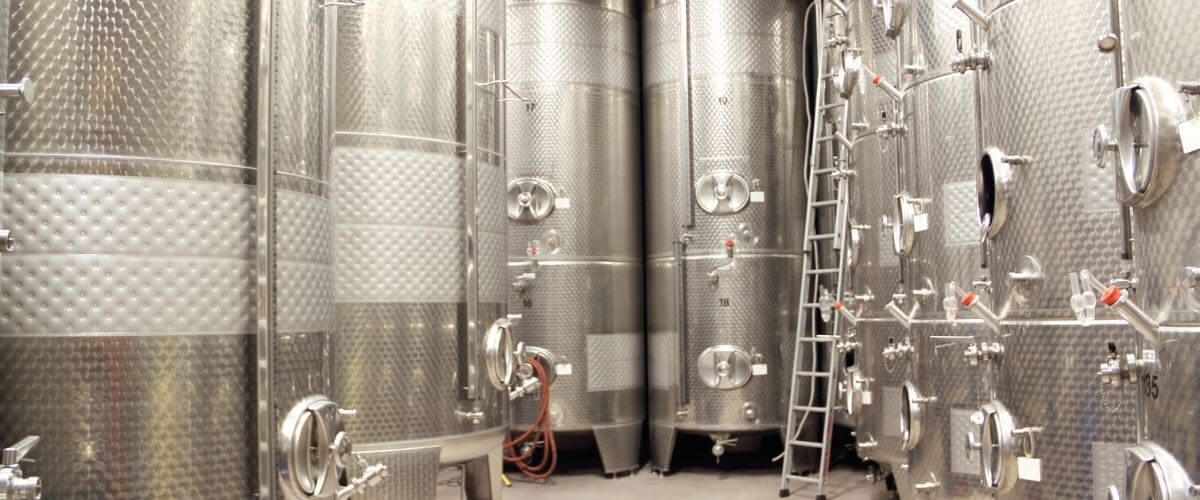
We at Extreme Epoxy Coatings offer the best option for you when it comes to steel fabrication solutions. You can trust our company to meet whatever steel fabrication service you have in mind. Visit extremeepoxycoatings.com for more info.
With our high-tech facility, we provide a comprehensive selection of steel fabrication assignments. Additionally, we meet strict AWS/DOT standards and comply with strict RoHS guidelines to provide our clients with quality output.
Whatever your needs are, be it for your home, agricultural, commercial, industrial, automotive, military, or food/beverage industry steel fabrication, we have an ever-ready group that will assist you in your tasks.
Best Storage Tanks for Flammable Liquids
Are you considering increasing the number of tanks that contains flammable liquids at your facility? Our Epoxy Storage Tanks for Flammable Liquids would be a perfect choice. We also provide you with guidance on how these tanks should be installed and protected.
Industrial Storage Tanks
Industrial storage tanks are special steel equipment that is used for the storage of natural gas, oil, water, and petrochemical products, which are meant for industrial uses. These Industrial storage tanks usually come in different sizes and shapes. You can find them underground, in horizontal, and vertical forms. They don’t only come in steel form, they also come in concrete, stone, fiberglass, or plastic.
The different types of industrial storage tanks have been outlined below:
Industrial Fuel Storage Tanks

These are also known as petroleum tanks, this tank has the capacity to store various fluids. Generally speaking, industrial fuel storage tanks are used for storing non-organic as well as organic liquids. These tanks have the capacity to retain vapor plus other flammable liquid.
Types of Industrial Fuel Storage Tanks
Aboveground tanks and Underground tanks are the two major types of fuel storage tanks.
Aboveground Fuel Tanks
Aboveground fuel tanks (AST) are more preferably to be used by many due to their low maintenance costs. Their installations are more cost-effective compared to underground tanks since backfilling is not required nor does it require deep excavation.
Underground Storage Tanks
The Underground storage tanks (UST) serves also as ground tanks since you have parts of the tank’s stored volume buried underground. They’re mostly used for fuel regulations and storing hazardous materials.
If you wish to maximize your space, then the underground tank is best for you. Underground storage tanks can be kept in such a way that they’re not visible (below driveways). Underground storage tanks are considered to be safer
Industrial Chemical Storage Tanks
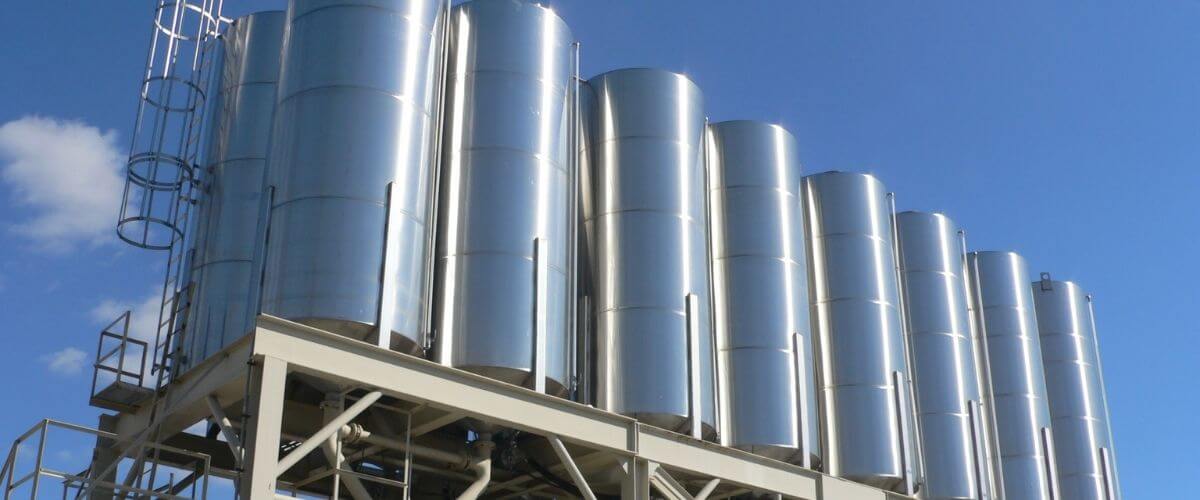
These tanks are used for storing fertilizers, propane, liquefied natural gas, petroleum products (gasoline, diesel), crude oil, and other chemicals. They’re also in various shapes and sizes. These Industrial storage tanks are used for mixing, processing, static storage, and transport of finished chemical products as well as raw materials.
Types of Industrial Chemical Storage Tanks include
– Stainless steel storage
Stainless steel tanks are durable and very effective. But are not best for storing acids.
– Fiberglass tanks
Fiberglass tanks can be used in most situations, but their lapses are the fact that their seams do leak and require maintenance. Fiberglass is easily affected by chemicals such as hydrofluorosilicic acid, and this can be a result of human error.
– Polyethylene storage tanks
Polyethylene storage tanks have many uses, which makes them more popular in the market. Most times, they come in two forms, which are the cross-linked form and linear polyethylene.
Industrial Oil Storage Tanks
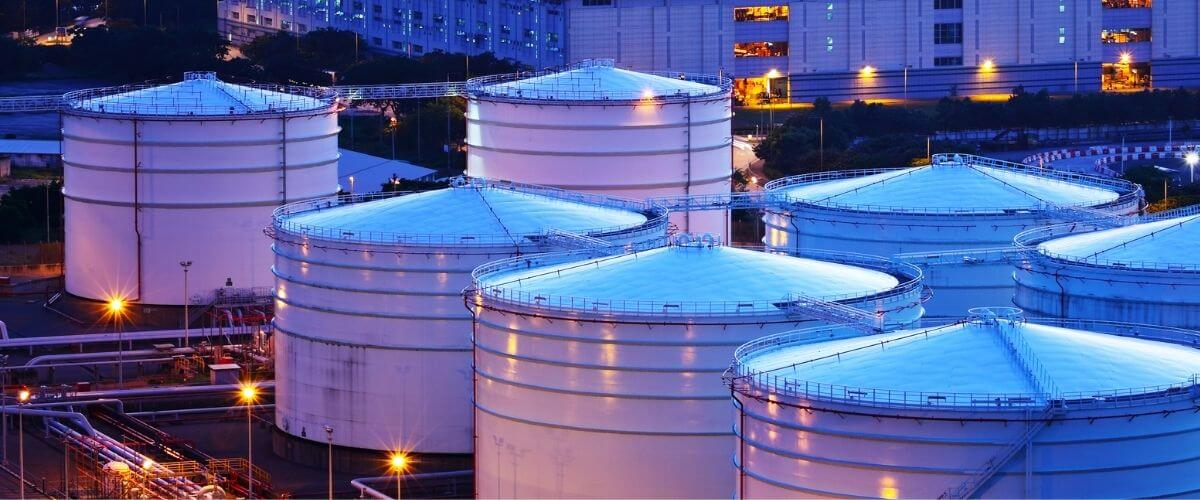
When oil is being processed into various types of products, they are temporarily stored in containers to avoid things like oil spills, etc. These containers or reservoirs are called industrial oil storage tanks. Industrial oil tanks come in different sizes, shapes, and materials employed from crude oil’s initial production to the distribution and refining of different petroleum oil products.
Oil tanks come in different materials like carbon steel, stainless steel, reinforced concrete, and plastic.
Oil Storage Tank Types
Generally, there are two kinds of crude oil storage tanks, they include fixed roof tanks and floating roof tanks.
Fixed roof tank
A fixed roof tank is in the event of crude oil quantity is small, that is, they’re used when the quantity of crude oil is not too large.
Floating roof tank
A floating roof tank is simply the opposite of a fixed roof tank, a floating roof tank is an optimum selection for storing larger quantities of crude oil. Feel free to us when you need crude oil storage tanks. We have credible engineers who will provide a detailed storage solution for your conditions.
Industrial Water and Liquid Storage Tanks
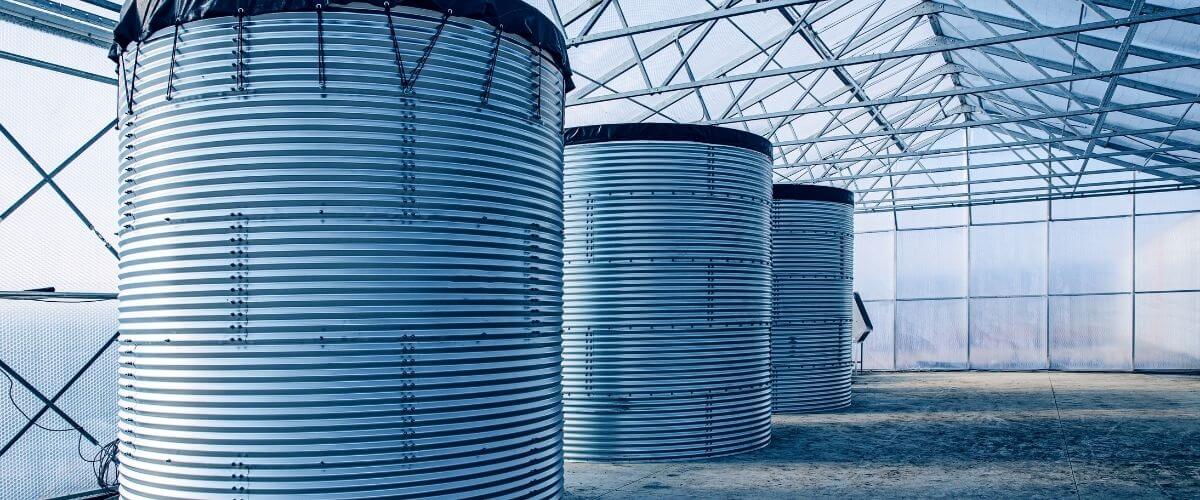
Industrial Water and liquid storage tanks are used to store liquids like kerosene, diesel, gasoline, and waste oil, and it is also used for underground burial and pressurized applications. The types of Water and Liquid Storage Tanks include the following;
Pillow (Bladder) Tanks
Pillow Tanks are durable and are used as temporary and long-term storage solutions for potable water, wastewater, fuel, diesel, jet fuel, chemicals, transformer oil, gasses, and other liquids. Pillow Tanks come in different sizes, from smaller sizes up to 210,000 gallons. Extreme Epoxy Coatings is your doorway to non-potable water tank bladders & fuel pillow tanks made by the leading bladder & tank manufacturer factories. Our Pillow Tank Network gives you maximum values & multiple shipping locations on select orders.
Poly Tanks
Poly tanks are mostly used domestically. They’re usually used for rainwater collection and drinking water storage etc. You can also find Poly tanks in different types that include wastewater tanks, mobile tanks, above ground tanks, etc
Corrugated Steel Tanks
These liquid storage tanks are long-lasting, adaptable, and cost-effective. They’re made of galvanized corrugated steel and can be tailored to match your specific requirements. Corrugated steel tanks are commonly used for industrial process water, rainfall collection, and fire protection.
Welded Steel Tanks
Unlike other types of tanks, welded steel tanks are considered the best solution for storage over the long term. Welded steel tanks are heavy-duty industrial storage tanks are built to last. The Steel tanks come in a variety of sizes and shapes, depending on your requirements.
Industrial Plastic Water Storage Tanks
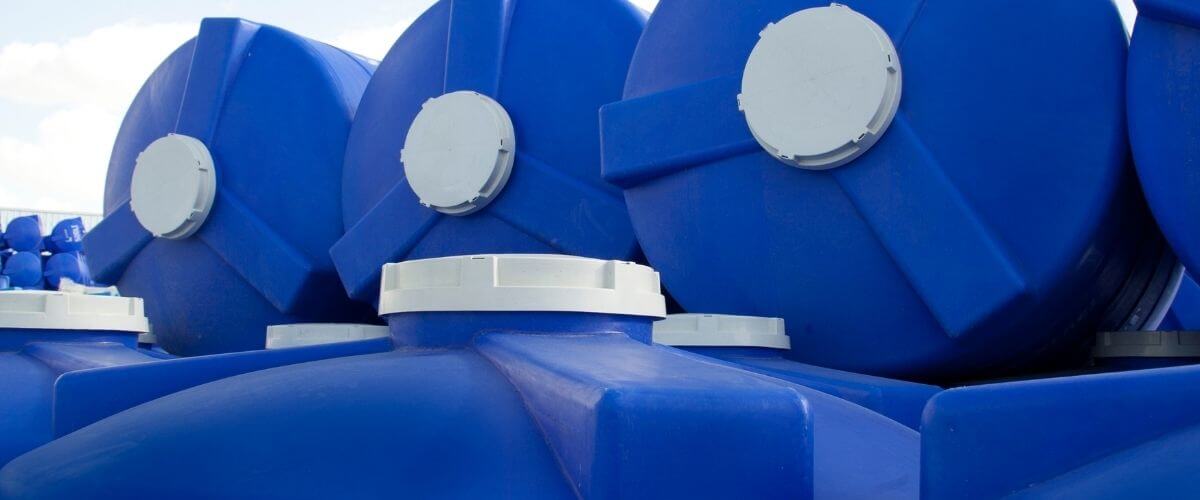
The importance of Water storage cannot be overemphasized, water storage can be used for domestic, residential, industrial, and commercial purposes. One of the best ways of storing water conventionally is the use of plastic water storage tanks.
Plastic tanks can be moved easily as they’re lightweight and highly durable. They also occupy less area compared to cement and concrete tanks.
Industrial Gas Storage Tanks
Gas is usually compressed into pressure vessels for it to be stored, such vessels include tube trailers, or gas cylinders, using a gas compressor through piping systems. The production of Gas cylinders is mostly for gas storage.
Compressed Natural Gas & Liquefied Natural Gas
People usually get confused when diff renting between Compressed Natural Gas & Liquefied Natural Gas. However, they’re both natural gas in stored form and one of the main differences between the two is that Compressed Natural Gas is stored at high pressure and ambient temperature, while Liquefied Natural Gas is stored at ambient pressure and low temperature.
While in their various states of storage, Compressed Natural Gas is supercritical fluid and Liquefied Natural Gas is liquid.
Industrial Liquid & Water Storage
These storage tanks store kerosene, diesel fuel, gasoline, and waste oil in addition to water. You can select from the following water storage types depending on your preference:
Plastic Industrial Storage Tanks
These tanks are robust, lightweight, and compact containers for storing domestic, industrial, and commercial uses. In addition, they are more adaptable than traditional storage tanks. Food processing, agricultural and chemical manufacturing industries all use plastic water storage tanks.
Note: You can contact us at Extreme Epoxy Coatings for any type of industrial storage tank you need. We at Extreme Epoxy Coatings offer a wide range of industrial storage tanks for storing gasoline, chemicals, and other liquids.
How To Prevent Tank Failures
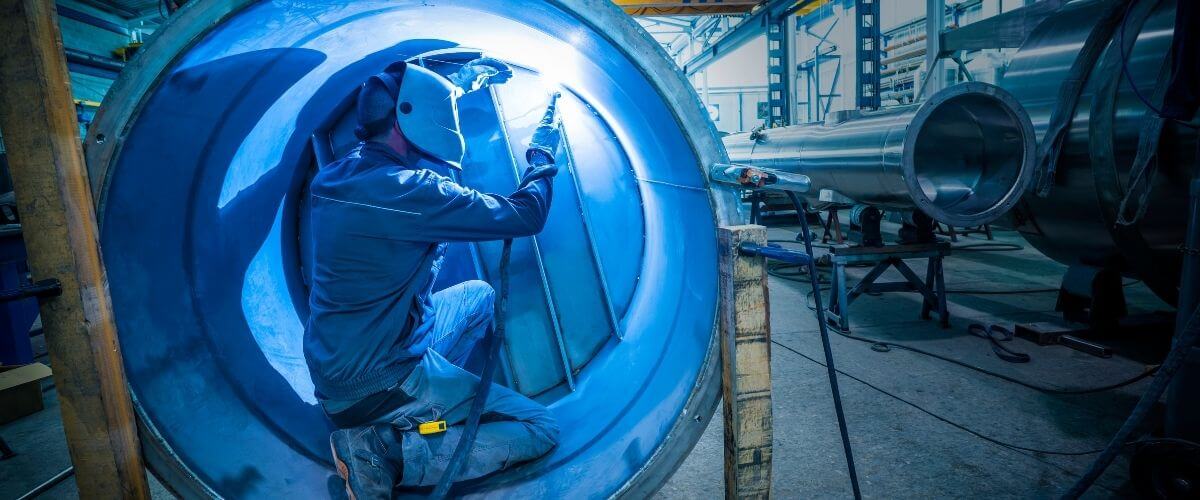
We’ve had lots of tank failure disasters in the past. Some of these tank failures might be the resultant effect of a “thin wall” which obviously would not be able to withstand loads repeatedly from the contents. In this case, the tank bolts being fastened and also testing of the tank before use by water fill-up would be necessary to avoid tank failure.
Other cause of tank failure often results from substandard steel or faulty welding. Therefore, an industrial storage tank should be efficiently designed and constructed. High-level maintenance is also required, with good safety checks and inspections being conducted at regular intervals.


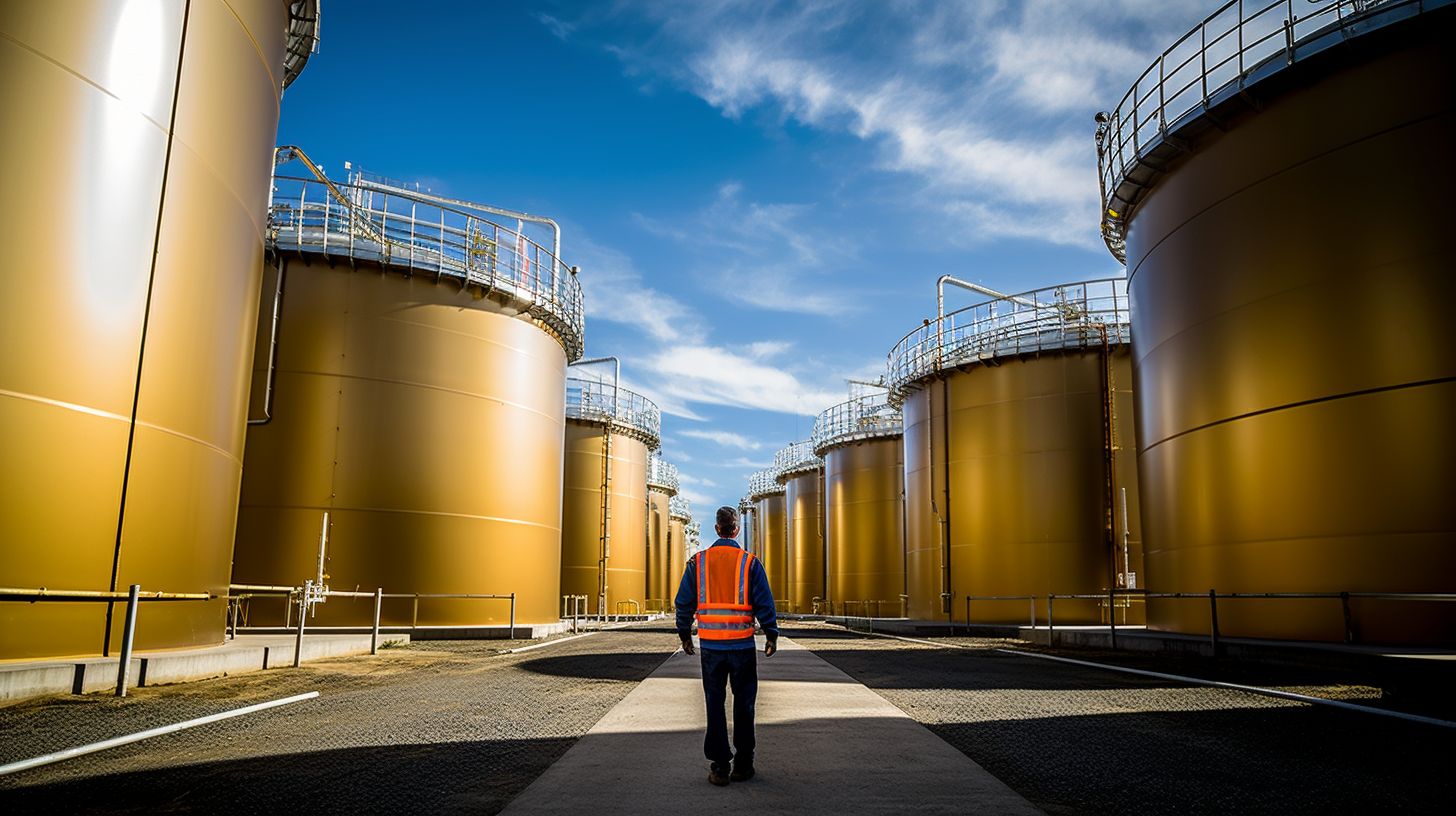
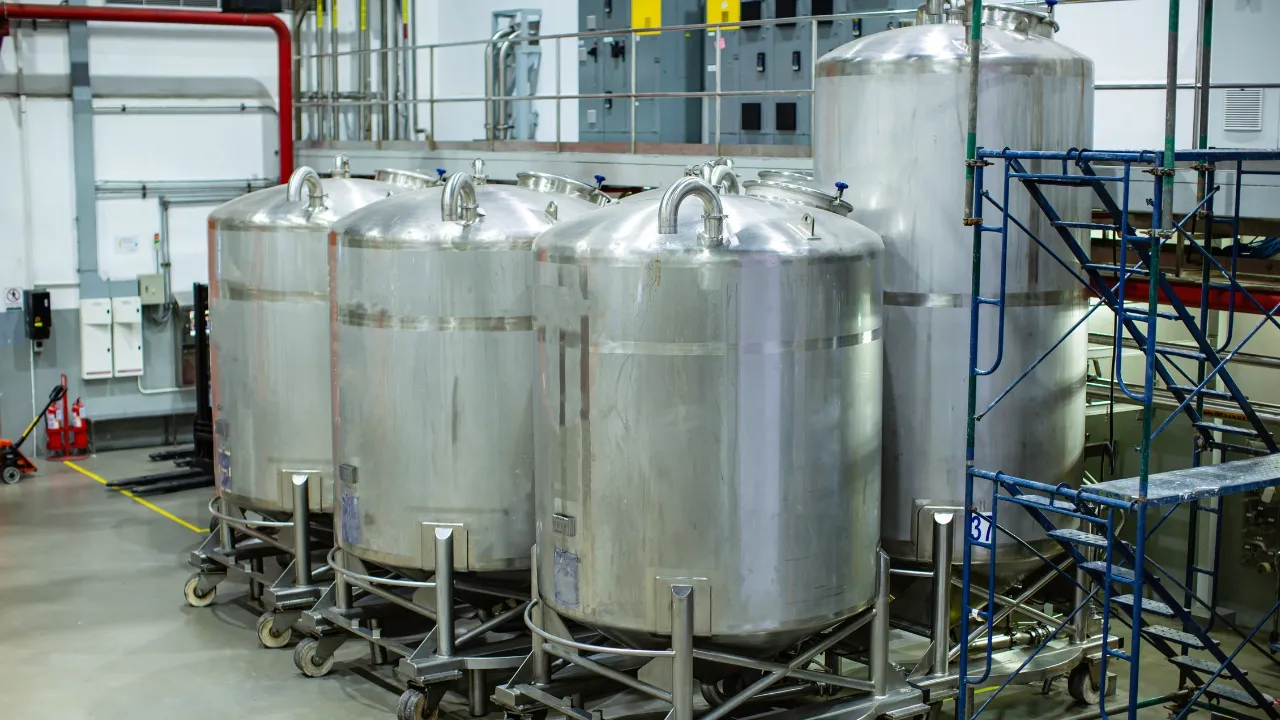
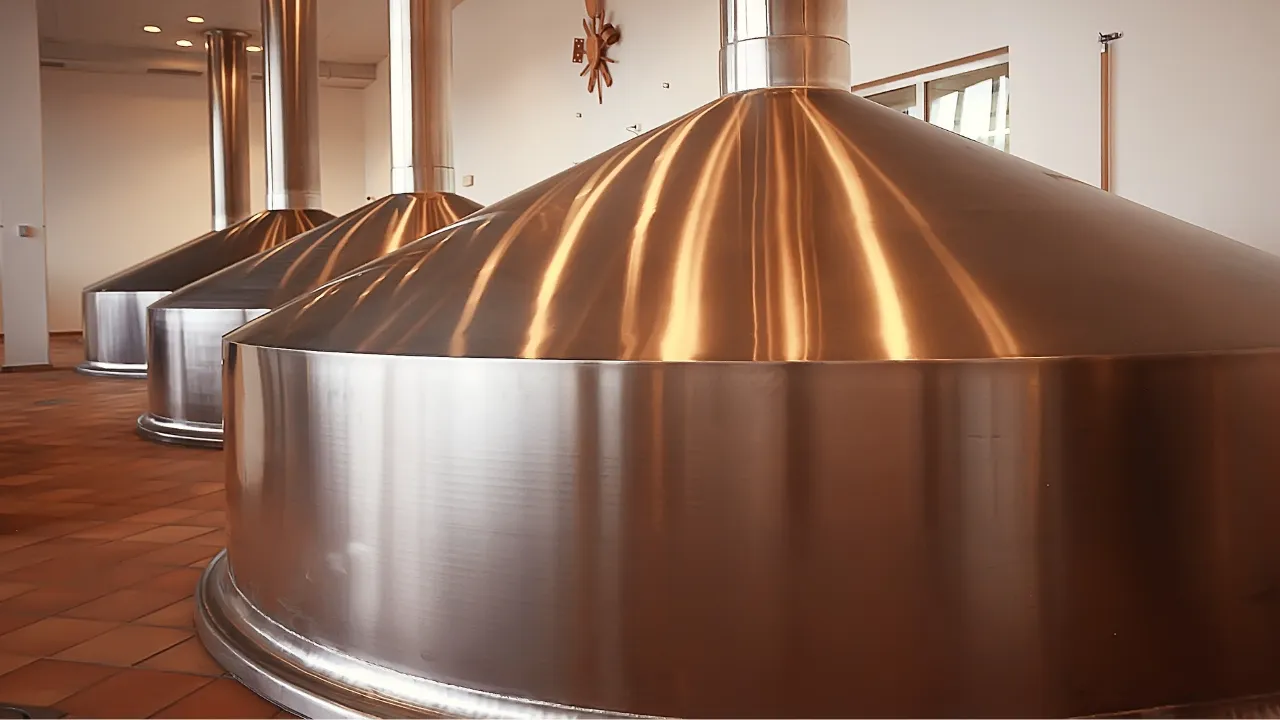
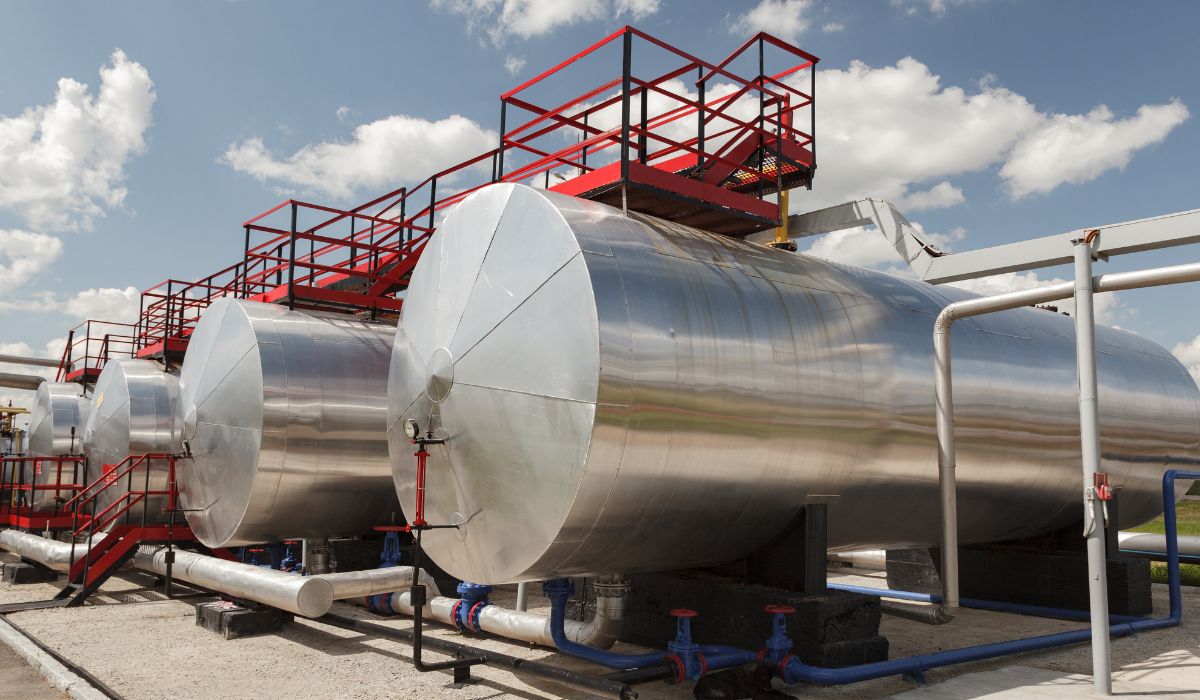
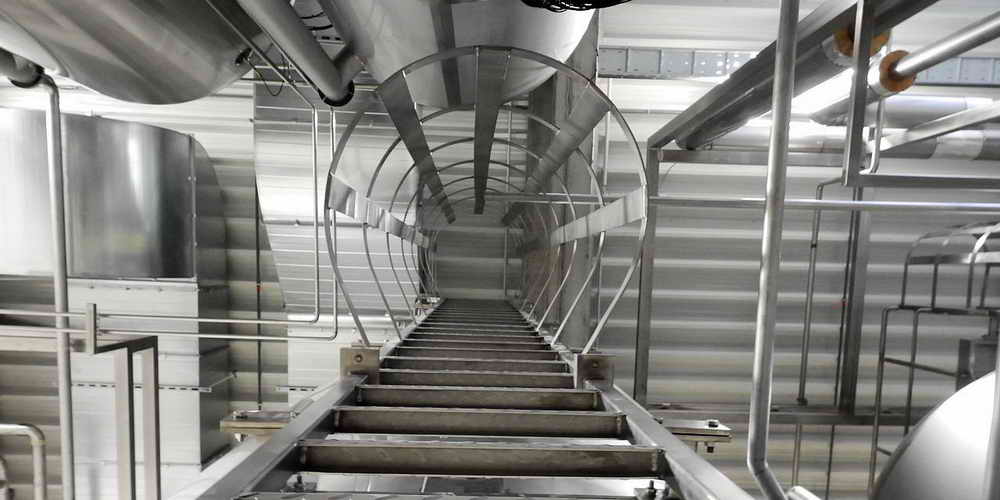
Leave A Comment